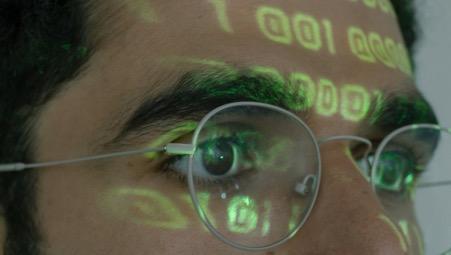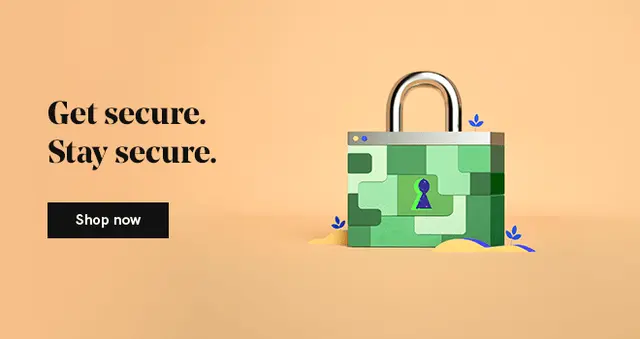If you are wondering if an SSL certificate is a foolproof solution to prevent your website from being hacked, read on.
SSL certificates have become an important part of online security, and for good reason. They help keep sensitive data like customer information safe and secure. But many people assume that having an SSL certificate automatically prevents hacking of their website. Unfortunately, this isn't the case.
In order to truly strengthen website security, you need to take a more comprehensive approach. One that starts with SSL, but incorporates other factors.
In this article, we will discuss the importance of SSL certificates. On top of that, we will share other methods to prevent cyber attackers and hackers from hacking your website. Are you ready to strengthen your website security to protect against hackers and cybersecurity issues? If so, read on!
Can you hack an SSL certificate?
SSL certificates are designed to be incredibly secure. However, nothing is 100% hack-proof. In 2016, security researchers discovered a major security flaw in the SSL protocol. This could have allowed hackers to decrypt SSL traffic. This flaw, known as the DROWN attack, left roughly 33% of all websites vulnerable by taking advantage of an outdated protocol.
While disabling the older SSLv2 protocol resolved this particular issue, it does highlight the potential for bad actors to hack SSL certificates.
So, to answer the question, “is it possible to hack an SSL certificate?” the answer is yes, but it’s highly unlikely. As long as your SSL (Secure Sockets Layer) certificate is using the latest TLS (Transport Layer Security) v1.3 protocol, your SSL certificate should be safe.
How safe is an SSL certificate?
Given how secure 256-bit encryption is, many would consider SSL to be generally very safe. 256-bit encryption means there is a 78-digit long number (yes, that’s 25 commas) of possible combinations to try and get it right.
It's estimated that it would take a supercomputer running a brute force attack many years to crack encryption of that strength.
Well, then how can someone hack SSL certificates?
It’s unlikely that your SSL certificate will be hacked in the way we just mentioned. Instead, it’s much more likely that an SSL certificate can become compromised through far simpler methods.
Here are some important tips to protect your SSL from being compromised:
- Protect your private key: Falling for a phishing or malware attack that gains access to your SSL’s private key is much easier than cracking an encrypted connection. Be sure to have your SSL reissued immediately if you think your private key has been compromised.
- Keep an eye on SSL renewals: If your SSL certificate expires before you get around to renewing or replacing it, your website will be left vulnerable to attack. That’s why it’s always crucial to stay on top of your SSL’s expiration date. Then, start the renewal process ahead of time to be in the clear.
- Disable older TLS protocol versions: As with the DROWN attack mentioned above, it’s necessary to always stay up to date with the most current transport layer security protocol. Also, be sure to disable outdated protocol versions from being allowed in your web server settings.
By the way, GoDaddy offers a free Certificate Decoder tool to check your SSL certificate to make sure it’s up to date. Just follow the link to decrypt your SSL certificate.
The myth: SSL certificate fully protects your website from getting hacked

Unfortunately, many website owners have the misconception that SSL certificates are all they need to do in order to ensure a secure website. However, this simply isn't the case. SSL certificates are a great first step in protecting your site. However, they should not be your only line of defense. There's more you can (and should) do to protect your website from hackers.
The biggest reason is that SSL certificates only secure the connection between your website and the user's browser. This means once the data reaches the user's browser, it is no longer encrypted. So, if a hacker were to gain access to the user's device, they could potentially see and steal any sensitive information there.
For this reason, it's important to take other steps that we'll discuss in this guide.
Does an SSL certificate mean a website is safe?
People may believe that if a website has an SSL certificate, it must be safe. However, this is not always the case. Just because you see that a website has an SSL certificate (by displaying the “padlock” symbol in the address bar), that doesn't guarantee that website is 100% safe to visit. While the website may have a valid SSL certificate, other security threats can cause the website to be compromised.
For example, a website protected by SSL could still be vulnerable to malware. If a user were to visit the site and their device became infected with malware, a hacker could potentially gain access to personal data.
Additionally, a website may have a valid SSL certificate, but it could still be running an outdated version of WordPress or another content management system (CMS). If a website is using an outdated CMS, hackers could access the site to steal data from each site visitor.
We must also mention the case of bad actors who create scam websites that look legitimate. However, these are actually designed to steal sensitive information such as credit card information from website visitors. These may still have a valid SSL certificate.
So, while an SSL certificate can be a good indicator that a website is legitimate, it's not a guarantee.
Does having an SSL certificate prevent your website from getting hacked?
No, as we’ve mentioned, SSL certificates cannot prevent the hacking of your website. This is because SSL certificates only create a secure connection between your website and the user's browser.
Think of this as guards protecting a highway. They can only protect vehicles in transit, not within the starting location or destination.
We gave a few examples in the previous section about reasons a website can be unsafe, even with SSL. Similarly, here are a few ways a website can be hacked despite having an SSL certificate:
- A user's device could become infected after visiting a website compromised by malware,. Once the device is infected, a hacker could potentially gain access to any sensitive information that was sent unencrypted. This include can include login info for your website.
- If a user clicks on a phishing link that takes them to a website that looks legitimate but is actually a fake, the hacker could potentially steal their login credentials.
- If a hacker is able to gain access to the user's device through other means, they can potentially find any sensitive data.
For these reasons, it's important to take other steps to protect your website (in addition to using an SSL certificate).
Let’s get real about SSL certificates
SSL certificates are an important part of website security, but they are not a comprehensive security solution on their own. To get a better understanding of why SSL certificates are important, it’s helpful to know how they work.
What does an SSL certificate do?
SSL certificates work by encrypting data sent between a website and a user. This means that anyone who tries to intercept the data will not be able to read it.
SSL encryption uses a process called public key cryptography. This process involves two keys, a private key and a public key. Only the website owner would know the private key, while the public key is available to anyone. Data encrypted with the public key can only be decrypted with the private key.
So, SSL certificates are used to encrypt data as it’s being transferred. But they're also used to verify the identity of a website. When you see the “padlock” symbol in a browser like Chrome or Safari, this means that the website is using an SSL certificate. And depending on which type of SSL certificate is used, more or less information about the website and its owner is verified.
These are the common types of SSL certificates and what they verify:
- Domain validation (DV) certificates: These verify that you own the domain name.
- Organization validation (OV) certificates: These verify that you own the domain name and that your organization is legitimate.
- Extended validation (EV) certificates: These verify that you own the domain name, your organization is legitimate, and your organization has been vetted by the Certificate Authority.
Editor’s note: Ready to show your website visitors that you’re trustworthy and authentic? Shop GoDaddy’s SSL Certificates today!

Are there things that an SSL certificate cannot do?
Yes, as we've said, there are other important website security issues that an SSL certificate cannot address. For example, SSL cannot:
- Prevent your website from being hacked. This is because SSL certificates only secure the connection between your website and the user's browser. Once the data reaches the user's browser, it is no longer encrypted.
- Protect against malware. If a user visits a malware-compromised website, their device could become infected.
- Protect against phishing. If a user clicks on a phishing link that takes them to a website that looks legitimate but is actually a fake, the hacker could potentially steal their login credentials.
Let's now discuss some important ways you can further secure your website.
Ways to strengthen your website security beyond SSL certificates
Even though SSL certificates are important, there are other steps you can take to protect your website. Here are some things you can do to strengthen website security:
- Keep your software up to date: This includes things like your operating system, web browser, and plugins. Outdated software can be a security risk because it might have known vulnerabilities that hackers can exploit.
- Use strong passwords and 2FA: Strong passwords are harder for hackers to guess. They should be at least eight characters long and include a mix of uppercase and lowercase letters, numbers, and symbols. You should also consider adding two-factor authentication (2FA). This requires entering a code in one of the available apps, such as Google’s Authenticator.
- Invest in a good web hosting service: A good web hosting service will have security measures in place to protect your website. They will also provide you with support if you have any questions or issues.
- Use a firewall: A firewall can help to protect your website from attacks by blocking unwanted traffic. This is a good defense against hackers who are trying to gain access to your website.
- Sign up for GoDaddy's Website Security service: This service includes a bundle of important website security features to protect your site. These include firewall protection, malware scanning and removal, DDoS protection, and an SSL certificate.
Take a multi-layered approach to protect your website from being hacked even with an SSL certificate. In addition to SSL certificates, you should also consider each of the methods mentioned above. By taking these extra steps, you can help ensure that your website is as secure as possible.
Protect your website today with the right tools
We hope this article has helped you understand a little more about SSL certificates and how they are an important part of website security. SSL helps by encrypting the data sent between your website and the user's browser. Depending on the type of SSL certificate used, you can verify information about the website and the related organization.
While SSL certificates help strengthen website security, they should just be one aspect of a larger strategy. There are other steps you can take to further protect your site, such as keeping your software up to date and using strong passwords.
If you're looking for an all-in-one solution to help secure your site, consider GoDaddy's Website Security service. It includes features like malware scanning and removal, DDoS protection, and an SSL certificate. It's a great way to gain peace of mind knowing your website is being protected.
At GoDaddy, we can help you protect your website with SSL certificates and more. Contact us today to learn more about how we can help you keep your website safe.
Make sure you set up your SSL certificate correctly. Our care guides are on standby to help you!








